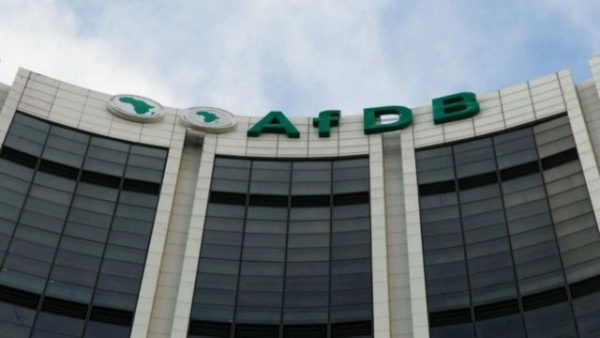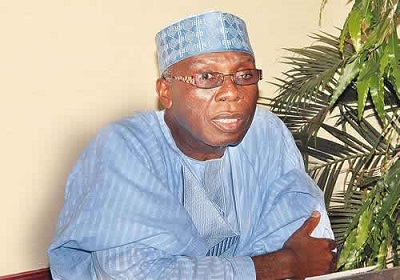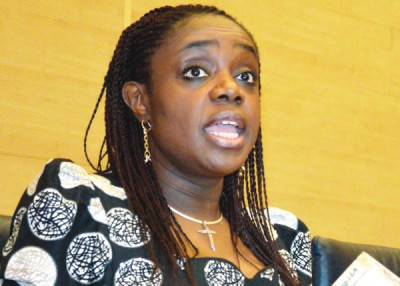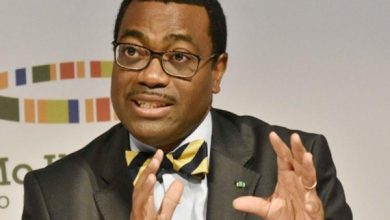How COVID-19 exposes Nigeria’s poor governance structure
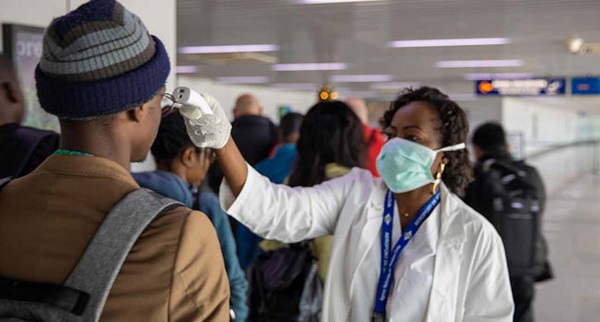 One obvious fact Nigerians must be prepared to face, peradventure the country quickly succeeds in containing the COVID-19 pandemic from spreading further, is the drastic change it would engender in the country’s socio-economic and political landscape. While many Nigerians already know that the various arms of government in the country are performing below expectations in terms of service delivery, the coronavirus has further exposed them for the sham that they are, that indeed governance is far worse than the way it had been assumed before now.
One obvious fact Nigerians must be prepared to face, peradventure the country quickly succeeds in containing the COVID-19 pandemic from spreading further, is the drastic change it would engender in the country’s socio-economic and political landscape. While many Nigerians already know that the various arms of government in the country are performing below expectations in terms of service delivery, the coronavirus has further exposed them for the sham that they are, that indeed governance is far worse than the way it had been assumed before now.
It is certain that the pandemic has exposed the weaknesses of governance and the poverty of leadership capacity to tackle any national emergency, especially in the healthcare, transportation and intervention sectors. The weeks of lockdown are telling enough evidence. Some stakeholders who spoke to The Guardian yesterday are resorting to divine intervention for an end to the pandemic so it does not spread beyond its present level, fearing that the immediate and long-term consequences may be too devastating to contemplate.
While speaking on steps government must quickly take to mitigate the effects of the situation, a chieftain of Lagos chapter of All Progressives Congress (APC), Mr. Fouad Oki, said it is imperative of the Buhari administration as well as the 36 states’ governors to start looking at the micro-economic indices in reflection of local content to stabilize employment after the pandemic. He warned that many companies would likely reduce their staff strength or the capacity to re-engage some of those staff that have been disengaged during the period of containment of Covid-19 crisis due to the sluggish economy that may result.
According to him, “It important for government to intervene with the aim to assist many of these organisations to survive otherwise the challenges of unemployment the country might be exposed to may be more devastating than what is happening at present.”
Oki also said government at various levels must focus more on the issue of security from now. Using Lagos State as a peg, the APC stalwart said Governor Babajide Sanwo-Olu, who has been commended for a job well done, must re-fix agencies like Lagos Transport Management Authority (LASTMA), KAI, Neighborhood Watch among other to enforce law and order just as it would be necessary for the Federal Government to focus on the police and other security agencies to be up to the task of curtailing possible high crime rate that may occur after the pandemic.
He also tasked government on the need to look at models to improve Nigeria’s public transportation system, which is nothing to write home about at present.
According to him, “It is better imagined if COVID-19 had started from Nigeria with the current mode of transportation system. I doubt if we would have been able to contain it as we are doing now.”
In that regard, Oki suggested that better transportation system rather than the current haphazard type like commercial motorcycles (okada), tricycles (keke), danfo, molue and other outmoded transportation that fuse people together without social distancing should be adopted.
According to him, “More than ever before, various governments in Nigeria should invest more on rail transport, water transport and others. Our rail lines should be extended to all parts of the country, just as it is imperative to start in earnest policies re-fix our roads across the country.”
Oki further tasked government to take a critical look at the country’s healthcare system, which according to him, has been badly exposed as being below standard by the pandemic. Although, he acknowledged that the challenges in the healthcare system is not due to inadequate medical personnel, but a lack of political will on the part of government to do the needful.
“COVID-19 has seriously exposed the dangers our nation is prone to in case of national emergence and it is high time we faced the reality,” he said. “For instance, I wonder what would have happened if what is happening in the United States, Italy, Britain and other western nations that are presumed to have standard medical system had happened in Nigeria?”
He also urged government to be more determined than ever to rejig and fix the micro-economic drivers, saying, “It is important to grant soft loans with little or no collateral to traders, artisans just as I want to re-emphasise that unemployment is likely to increase as from now. The National Assembly must be more than ready to reexamine the issue of social health, social safety and others through concrete legislation.”
While lamenting that COVID-19 has not only exposed the inadequacies of governments in Nigeria, but also shown that the country lacks committed leaders, former President of Aka Ikenga, Chief Goddy Uwazurike, said, “The epidemic has shown the true makeup of the government of President Muhamadu Buhari. It is inconceivable that a government cannot handle a health crisis even when the man on the street could predict the impending lockdown. Because of the Internet coverage of the goings-on in the world, the average person in this country knew that the coronavirus was just a plane trip away. What the government showed was an acute lack of awareness of the goings-on in the world.
“It took President Buhari ages to address us when other presidents in the world were daily addressing their people. Even at that, Mr. President gave the impression of doing us a favour. To the government, there was no duty. Mr. President has since retreated to his usual self, being seen once in a while on TV in his sitting room. As usual, aides come out to tell us what the president thinks.”
The legal practitioner added that the coronavirus epidemic has shown how hollow Nigeria’s medical services are, which according to him, explained why top government officials, including the president, frequently flew abroad for medical attention.
“I am glad that the Secretary to the Government of the Federation (SGF), Mr. Boss Mustapha, and his team have had a chance to see the extent of rot in our health system,” Uwazurike stated. “The blame lies squarely on the table of Mr. President. He has had serious medical issues, but never for once did he deem it fit to equip at least one hospital to match the standard of the ones he visits for treatment abroad. This neglect, which his wife, Aisha, lamented repeatedly, has become our nemesis.”
Proffering what should be done to mitigate future socio-political and economic consequences the pandemic would certainly foist on Nigeria and Nigerians, Uwazurike advised, “The first action of this government should be to equip one hospital in each of six geo-political zones to match the standard of the ones government people go to abroad. The second programme should be to respond to the numerous cries of the healthcare professionals to upgrade their welfare. The third item is attitudinal. The idea of the government seeing the demands of healthcare workers, as irritating must stop and government should go for virement. This means taking the money budgeted for other areas such as security votes and transferring it to health. Health is wealth!”
In his observation, Executive Secretary, Nigerian National Summit Group (NNSG), Mr. Tony Uranta, noted that COVID-19 pandemic has taught the political class that they are not doing the electorate favours when they ensure that the health facilities are adequate and properly equipped, or when they ensure that the country’s living conditions are not so dismal as to encourage brain drain such that doctors and nurses flee the country in droves, nor when they are not such rapacious thieves as to, for example, collect tens of billions of naira ostensibly meant to equip the Villa Clinic only for the President’s Chief of Staff, Abba Kyari, to be rushed to a Lagos private clinic because the Villa Clinic is as bare as Mother Hubbard’s cupboard!
“But, even more revealing was the fact that not even a global pandemic threatening thousands of Nigerian lives could engender transparency and accountability in Nigeria’s governance practices, such that the only putative social security network, the Social Investment Policy could claim to have successfully disbursed over N5.5billion without being able to show records for said disbursements.”
He continued: “Simultaneously, Nigerians witnessed, with unbelieving shock, how stimulus packages were shared out primarily to the Northern states, using monies generated in the main from Southern states… without any going to the states where the majority of said funds are generated. This has made it more imperative than ever before that, for Nigeria to survive as a sustainably peaceful union premised on justice, equity and fair play, she must be urgently reconfigured to allow for the resource centres to benefit first from their own resources.”
A political scientist and erstwhile commissioner in Kaduna State, Isuwa Dogo, said before focusing on what the pandemic exposed about governance, “it is needful to commend the efforts of Nigerian doctors, despite their poor remunerations, for their determination in containing this pandemic is like someone facing a suicide mission. I also want to say that the various governments have tried in their little ways, because Covid-19 is a global tragedy.”
He, however, expressed worries that the pandemic has exposed Nigeria’s lack of preparedness in the health sector to meet national emergency, food supply and inability of our government to capture the entire population through the failed Social Investment Programme (SIP), which are serious issues in any country.
Dogo lamented that the crisis has also rubbished governance to show that there is serious population explosion of which the majority of Nigerians do not depend or get anything from government, but survive on what they get on a daily basis “that is the reason the lockdown order is not working.”
Dogo also faulted the housing policy in the country, saying, there is clarity now that many Nigerians do not have a home and the fact that we lack transportation system that can aid social distancing.
“Our government has failed in almost every aspect of human existence,” he lamented. He suggested the need for government to tackle the rot in healthcare system, adding that something more drastic should be done to reduce corruption in public service.
“We need to improve on the power sector and also in communication,” Dogo advised. “It is also needful to re-examine our political system to allow for the best and credible candidates that will serve the people to emerge in elections.”



